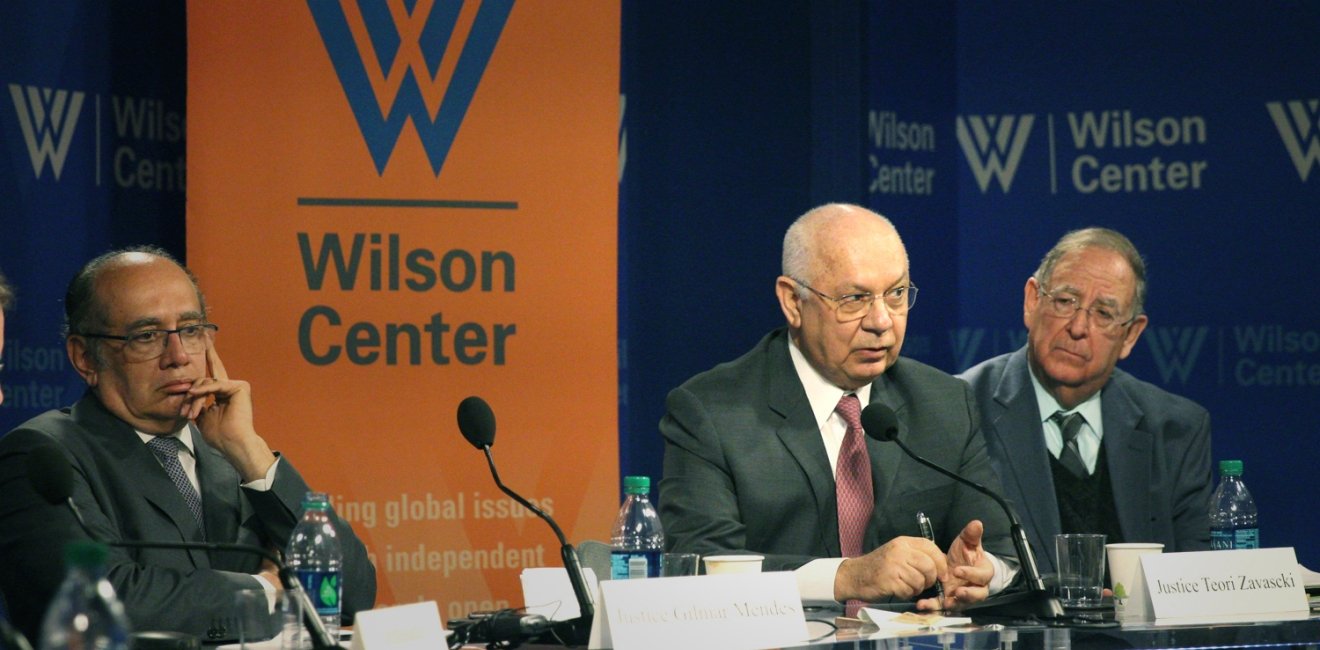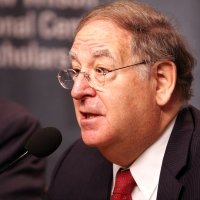"The Loss of Minister Teori Zavaski is not Brazil's Alone"
The untimely passing of Minister Teori Zavascki, of the Brazilian Supreme Federal Tribunal, has added to the challenges of a country shaken by a prolonged crisis.
The untimely passing of Minister Teori Zavascki, of the Brazilian Supreme Federal Tribunal, has added to the challenges of a country shaken by a prolonged crisis.

The untimely passing of Minister Teori Zavascki, of the Brazilian Supreme Federal Tribunal, has added to the challenges of a country shaken by a prolonged crisis. One of eleven members of Brazil’s Supreme Court, Justice Zavascki was charged with overseeing the federal criminal investigation into the massive corruption scheme involving state oil company Petrobras during the Workers Party administrations of presidents Luiz Inácio Lula da Silva and Dilma Rousseff. His death on January 19, 2017 at the age of 68 leaves much yet undone. Minister Teori was traveling to Paraty, a historic seaside town on the southern coast of Rio de Janeiro when the small plane he was on crashed while approaching the landing strip. Ongoing investigations by the Brazilian Air Force have not indicated foul play was involved in the tragic event.
“Minister Zavascki was a national hero for the manner in which he dealt with the very difficult and complex case."
— Sergio Moro, the 44 year old federal judge who has led the investigations from their start in March 2014 (and who spoke at the Wilson Center in July 2016).
“Justice Zavascki was an icon of the Judiciary…His loss is not Brazil’s alone. It is a loss for all of us everywhere who believe in the independence of the Judiciary and the Rule of Law.”
— U.S. District Judge Peter J. Messitte, in a tribute to the Brazilian magistrate (available below). Messitte, also Director of the Brazil-U.S. Legal and Judicial Studies Program at the American University Washington College of Law, participated last November with Zavascki and Justice Gilmar Mendes in a morning of lectures held by the Wilson Center’s Brazil Institute on the Rule of Law in South America’s largest democracy. Appointed to the Court by former President Dilma Rousseff in 2012, Justice Zavascki was expected to release next month thousands of pages of testimony made under plea bargain agreements by 77 executives of construction giant Odebrecht—only one of more than a dozen companies implicated in crimes committed around the world, including in the United States. On December 21 of last year, Odebrecht and subsidiary Braskem pleaded guilty and agreed to pay at least $3.5 billion in global penalties, in what the U.S. Justice Department described as the largest bribery case resolution in history. With the Brazilian Supreme Court in summer recess, Chief Justice Cármen Lúcia Antunes Rocha has instructed the auxiliary judges who were assisting Zavascki to continue to work on the federal investigation. Three dozen politicians, including members of the House and Senate, are expected to be indicted and tried by the Supreme Court as a consequence of the “Lava Jato,” as the case is popularly known. More than 200 business executives and politicians, including the former president and CEO of Odebrecht, Marcelo Odebrecht, have or are currently serving jail time. The coming publication of the confessions by the Odebrecht executives, likely to implicate other figures involved in the scheme, has fed apprehension among political leaders. Yet the investigations, which are overwhelmingly supported in public opinion surveys, has become emblematic of Brazil’s resolve and growing institutional capacity to confront the systemic nature of political and corporate corruption that has plagued its performance since the country’s return to democracy in the mid-1980s, after two decades of authoritarian rule. Minister Zavascki’s professionalism and dedication were key components of that institutional strength, leaving many wondering what will come next. Minister Cármen Lúcia, a well-regarded judge and the second woman to preside over the Supreme Court, is likely to accept the request made by Attorney General and chief prosecutor Rodrigo Janot to conclude with “urgency” the review of the Odebrecht plea confessions. President Michel Temer is expected to fill Zavascki’s vacancy in the coming weeks. According to advisors, Temer—a highly unpopular president—is aware that any attempt to use Zavascki’s tragic death as a pretext to water down the investigations would be met with a strong popular reaction.


The Brazil Institute—the only country-specific policy institution focused on Brazil in Washington—aims to deepen understanding of Brazil’s complex landscape and strengthen relations between Brazilian and US institutions across all sectors. Read more


